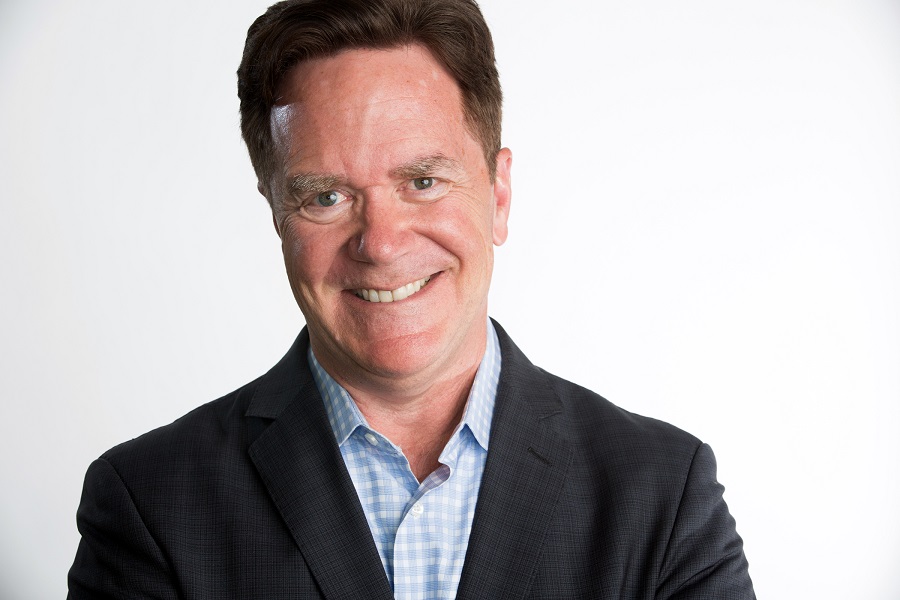PITTSBURGH: City Theatre has announced that co-artistic director Marc Masterson, who serves alongside fellow co-artistic directors Monteze Freeland and Clare Drobot, as well as managing director James McNeel, will retire at the end of the theatre’s 2023-24 season on June 30.
Masterson’s career has been intertwined with the growth of new-play production in America over the past 45 years. He started at City Theatre in 1980, just before the budget was slashed to zero due to budget cuts. He restructured the organization and the next year opened a new location in the city’s Oakland neighborhood. With a focus on new American plays, the company grew in reputation and attendance. Under his leadership, City Theatre was one of the first theatres in the country to operate on the Small Professional Theatre contract with Actors’ Equity, which allowed union members to work at small and mid-sized companies for the first time. As the company grew, they built a national reputation with new work by María Irene Fornés, Sam Shepard, and other leading artists of the alternative theatre movement.
Centering diversity and equity and investing heavily in arts education, the company opened a new facility in 1991 on Pittsburgh’s South Side, which has expanded over the years and remains its cultural home to this day. Masterson was a leading voice advocating for the inclusion of mid-sized and small arts organizations in the funding structure of the Allegheny Regional Asset District, and he was a co-founder of the Greater Pittsburgh Arts Alliance. During the 1990s City Theatre partnered five times with Anne Bogart’s SITI Company creating groundbreaking shows that moved to the Brooklyn Academy of Music and New York Theatre Workshop, as well as touring internationally. He also created the Young Playwright’s program at City Theatre, now on its 25th contest and festival.
In 2000, he left Pittsburgh to become artistic director at Actors Theatre of Louisville, and later South Coast Repertory, continuing his new-play emphasis in both places. He premiered four shows that moved to Broadway and dozens that went to Off-Broadway, in the process creating some of the most produced new plays in the country. He was an early champion of devised work, community-based work, hip-hop theatre, and global majority artists.
After a national search conducted by the board of directors and Management Consultants for the Arts, Masterson returned to the helm of City Theatre in July 2018, coming full circle to the theatre where he began his career. In collaboration with managing director James McNeel, Masterson oversaw the theatre’s producing efforts during the Covid pandemic, including the creation of the Drive-In Arts Festival at Hazelwood Green and several digital productions (including directing City Theatre’s first original digital movie, Claws Out: A Holiday Drag Musical, written by Monteze Freeland, Douglas Levine, and Shua Potter) that kept artists and staff employed as the industry endured an 18-month shutdown. His recent City Theatre directing credits include The Burdens by Matt Schatz (2019), Downstairs by Theresa Rebeck, What the Constitution Means to Me by Heidi Schreck (2023), Native Gardens by Karen Zacarias (2023), and the upcoming Andy Warhol in Iran by Brent Askari, which will close the current season.
In addition to programming and contributions on stage, Masterson worked with playwright and screenwriter Kemp Powers (One Night in Miami) in the establishment of the Kemp Powers Fund for Black Playwrights at City Theatre, an initiative that has so far yielded the commissioning of two new plays by emerging Black writers. Additionally, he helped establish a new planned giving program at City Theatre which includes the pledge of the largest one-time estate gift in the organization’s history. A endowment fund in Masterson’s was created at City Theatre in 2001 and continues to support artistic initiatives for the organization.
“It has been an honor to be part of this extraordinary company and to be able to work with some of the finest theatremakers in the country,” said Masterson in a statement. “I am excited about the future of City Theatre under the leadership of Monteze, Clare, and James, and know that along with the staff and board they will make great theatre for this community.”
In direct response to a call of action from the field-wide racial justice initiative, We See You White American Theater, in 2021 City Theatre announced a new co-leadership model by elevating Masterson’s artistic colleagues, Clare Drobot and Monteze Freeland, into a shared position. The team worked closely with McNeel, staff, and board in leading the company’s ongoing recovery from the Covid pandemic and producing three seasons of new plays and regional premieres. Following Masterson’s retirement, Freeland and Drobot will continue in the shared co-artistic director structure alongside McNeel as the organization enters its 50th anniversary next year.
“Marc’s legacy at both City Theatre and in the field at large is deeply felt,” said remarked co-artistic Drobot in a statement. “Throughout his career he has championed countless new plays and provided support and counsel to artists and arts leaders alike, and I am so fortunate to count myself amongst their ranks. City Theatre would not be the institution it is today without his leadership.”
Added fellow co-artistic director Monteze Freeland, “When I first joined the City Theatre team over a decade ago, the late great Dr. Vernell Lillie urged me to find Marc Masterson. Fifteen years later, not only did I find him, but he also became an instrumental player in my growth as an artist and an arts leader. A constant source of support and ingenuity, Marc has left an indelible mark on City Theatre, the region, and the world of contemporary plays. I am sure (and selfishly hope) this is just intermission before a spectacular next act.”
Founded in 1975, City Theatre bills itself as Pittsburgh’s home for bold new plays. City Theatre’s mission is to provide an artistic home for the development and production of contemporary plays that engage and challenge a diverse audience. As of 2022, the theatre’s budget was around $3.3 million.


